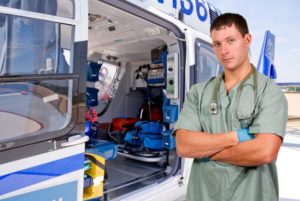Life as a traveling nurse can be exciting and fulfilling, but adjusting to a new hospital or other medical facility can add stress to an otherwise fantastic opportunity. Here are some of our tips to make the adjustment smooth and enjoyable.
Get Familiar With Your Facility
Learning your new space will help you feel instantly more comfortable. Understanding how to navigate the physical space as well as the “way things are done” paves the way for your success.
- Familiarize yourself with your new surroundings. Ask for a tour of the physical facility, if you are not offered one during your orientation. Locate items such as the crash cart and supply areas.
- Get to know the policies and procedures of the facility. These things can vary widely from facility to facility, so it’s important to know and understand the policies and procedures for each new place.
- Pay attention to scheduling. Who does the scheduling for your facility? Who handles overtime or time off requests? The person responsible may vary from facility to facility, so it’s important to have this information early in your assignment.
Get To Know The System
Each new work opportunity presents new technology, new codes, and a whole lot of new information. Learning this information quickly will help you be efficient and productive, especially in case of a time of crisis.
- Locate the crash cart and learn the codes. In the event of an emergency, having this information will be crucial, no matter your specific nursing specialty.
- Learn the computerized charting system. Again, this can vary widely from a travel nurse assignment to assignment, so take time to learn the system. Keep the IT contact information handy, and ask coworkers for help if you need it.
- Learn the floating requirements for your unit, if they weren’t discussed during your interview or orientation. This will help you avoid any scheduling surprises.
- Ask about timecards. You want to be compensated for your work, so be diligent about learning when and where to punch in or out, and what to do about any overtime hours.
Get To Know Your Coworkers
We all need colleagues, no matter our profession. But in the medical field, colleagues can be your greatest source of support. Here are some tips to familiarizing yourself with your new work family.
- Find a mentor in your new facility. This person can help you navigate a wide variety of issues, and may save you unnecessary inconveniences.
- Learn the communication preferences of your team. Is the expectation texting or calling when needed? Learn your team, and stick to their preferences.
- Be flexible! Each facility, and sometimes each team within that facility, will have new expectations, protocols, and cultures. Be ready and willing to learn!
- Have a great attitude. Keeping an open mind and an open line of communication can go a long way toward being successful in your assignment.
Take Time to Talk to Your Patients
Even in a new situation, you have the ability to make a difference in the lives of those you care for. That’s why so many people want to become nurses in the first place. Here are some tips for getting to know your patients.
- Even among your job’s challenges, remember that your patients are the reason you are there. Prioritize them and their needs above anything else.
- Become a patient advocate in your new facility. Learn who to go to in the event of a patient issue. Who are the problem solvers? Be a strong, empathetic advocate for those in your care.
Take Time For Yourself
Transition can be tough, so make sure to take care of your emotional, mental, and physical health.
- Get to know your new city. Explore! Find restaurants you like, or look for a park to take walks.
- Create and maintain healthy habits. It can be tempting in a new city and a new job to comfort yourself with some unhealthy habits, but work to maintain a healthy diet and exercise.
- Take time just for you. Read, meditate, call family and friends on a regular basis, and have a transportable hobby.
Don’t Be Afraid To Ask Questions
A new situation requires new knowledge and new experience, regardless of your previous knowledge or experience. Be up front about what you don’t know.
- During the interview and orientation processes, make notes and ask questions. Better to ask up front than be surprised later.
- Keep a small notebook or file on your phone with questions as they come up throughout your time at the facility, then follow up with getting answers to your questions.
- Rely on colleagues to help you. They were all new to this facility too at some point, and can be a valuable resource for you.
Finally, keep an open mind as you adjust to your new environment and new colleagues. Remember that like you, they are medical professionals who are passionate about caring for others–you and your patients alike. And enjoy your new adventure, with all the exciting opportunities to grow, and to passionately.
Ready for your next assignment? Check out our job board for the latest travel nurse jobs in the top travel nurse locations!


